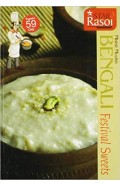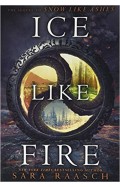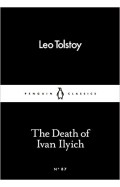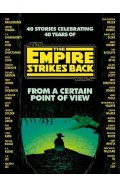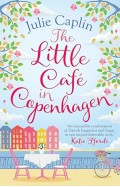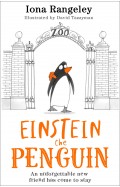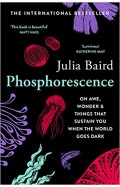- Home
- Categories
- Non Fiction
- Travellers in the Golden Realm - How Mughal India Connected England to the World
Travellers in the Golden Realm - How Mughal India Connected England to the World
By: Lubaaba Al-Azami
-
Rs 3,415.50
- Rs 3,795.00
- 10%
You save Rs 379.50.
Due to constant currency fluctuation, prices are subject to change with or without notice.
'Compelling, highly readable' NANDINI DAS, author of Courting India
'Remarkable' THE TIMES
When the first English travellers in India encountered an unimaginable superpower, their meetings would change the world.
Before the East India Company and before the British Empire, England was a pariah state. Seeking better fortunes, 16th and 17th century merchants, pilgrims and outcasts ventured to the kingdom of the mighty Mughals, attempting to sell coarse woollen broadcloth along the silk roads; playing courtiers in the Mughal palaces in pursuit of love; or simply touring the sub-continent in search of an elephant to ride.
Into this golden realm went Father Thomas Stephens, a Catholic fleeing his home; the merchant Ralph Fitch looking for jewels in the markets of Delhi; and John Mildenhall, an adventurer revelling in the highwire politics of the Mughal elite. It was a land ruled from the palatial towers by women - the formidable Empress Nur Jahan Begim, the enterprising Queen Mother Maryam al-Zamani, and the intrepid Princess Jahanara Begim. Their collision of worlds helped connect East and West, launching a tempestuous period of globalisation spanning from the Chinese opium trade to the slave trade in the Americas.
Drawing on rich, original sources, Lubaaba Al-Azami traces the origins of a relationship between two nations - one outsider and one superpower - whose cultures remain inextricably linked to this day.
'Illuminating and engrossing' THE TELEGRAPH
'Vital' SUZANNAH LIPSCOMB, author of A Visitor's Companion to Tudor England
'Compelling, highly readable' NANDINI DAS, author of Courting India
'Remarkable' THE TIMES
When the first English travellers in India encountered an unimaginable superpower, their meetings would change the world.
Before the East India Company and before the British Empire, England was a pariah state. Seeking better fortunes, 16th and 17th century merchants, pilgrims and outcasts ventured to the kingdom of the mighty Mughals, attempting to sell coarse woollen broadcloth along the silk roads; playing courtiers in the Mughal palaces in pursuit of love; or simply touring the sub-continent in search of an elephant to ride.
Into this golden realm went Father Thomas Stephens, a Catholic fleeing his home; the merchant Ralph Fitch looking for jewels in the markets of Delhi; and John Mildenhall, an adventurer revelling in the highwire politics of the Mughal elite. It was a land ruled from the palatial towers by women - the formidable Empress Nur Jahan Begim, the enterprising Queen Mother Maryam al-Zamani, and the intrepid Princess Jahanara Begim. Their collision of worlds helped connect East and West, launching a tempestuous period of globalisation spanning from the Chinese opium trade to the slave trade in the Americas.
Drawing on rich, original sources, Lubaaba Al-Azami traces the origins of a relationship between two nations - one outsider and one superpower - whose cultures remain inextricably linked to this day.
'Illuminating and engrossing' THE TELEGRAPH
'Vital' SUZANNAH LIPSCOMB, author of A Visitor's Companion to Tudor England
Travellers in the Golden Realm - How Mughal India Connected England to the World
By: Lubaaba Al-Azami
Rs 3,415.50 Rs 3,795.00 Ex Tax :Rs 3,415.50
Zubin Mehta: A Musical Journey (An Authorized Biography)
By: VOID - Bakhtiar K. Dadabhoy
Rs 892.50 Rs 1,050.00 Ex Tax :Rs 892.50
The Origins of Political Order From Prehuman Times to the French RevolutioN
By: Francis Fukuyama
Rs 4,045.50 Rs 4,495.00 Ex Tax :Rs 4,045.50
Manning Up: How the Rise of Women Has Turned Men into Boys
By: Kay Hymowitz
Rs 845.75 Rs 995.00 Ex Tax :Rs 845.75
The Obama Syndrome: Surrender At Home War Abroad
By: Tariq Ali
Rs 1,100.75 Rs 1,295.00 Ex Tax :Rs 1,100.75
The Quest For Meaning: Developing A Philosophy Of Pluralism
By: Tariq Ramadan
Rs 1,185.75 Rs 1,395.00 Ex Tax :Rs 1,185.75
No similar books from this author available at the moment.
Gwendys Final Task: Volume 3 (Gwendy's Button Box Trilogy)
By: Stephen King
Rs 2,545.75 Rs 2,995.00 Ex Tax :Rs 2,545.75
Hide and Seek: Pets by DK - Ages 0-5 - Board Book
By: Dorling Kindersley
Rs 1,747.50 Rs 3,495.00 Ex Tax :Rs 1,747.50
Worm and Caterpillar Are Friends Ready To Read Graphics Level 1 PB
By: Kaz Windness
Rs 2,195.00 Ex Tax :Rs 2,195.00
From a Certain Point of View - The Empire Strikes Back (Star Wars)
By: Seth Dickinson
Rs 2,205.75 Rs 2,595.00 Ex Tax :Rs 2,205.75
110 Spelling Flash Cards for ages 7-9
By: Scholastic Inc
Rs 1,525.75 Rs 1,795.00 Ex Tax :Rs 1,525.75
My Little Pony: Where Equestria Comes to Life
By: Caroline Rowlands
Rs 1,015.75 Rs 1,195.00 Ex Tax :Rs 1,015.75
Einstein the Penguin: The perfect new children’s book for 2022 – ‘a delight’ SUNDAY TIMES
By: Iona Rangeley
Rs 1,447.50 Rs 2,895.00 Ex Tax :Rs 1,447.50
The Batman and Scooby-Doo Mysteries Vol. 3
By: Sholly Fisch
Rs 3,310.75 Rs 3,895.00 Ex Tax :Rs 3,310.75
Dog Page-A-Day Gallery Calendar 2019
By: Workman Publishing
Rs 2,647.50 Rs 5,295.00 Ex Tax :Rs 2,647.50
The Bad Guys Movie - The Biggest, Baddest Fill-In Book Ever!
By: Terrance Crawford
Rs 1,075.50 Rs 1,195.00 Ex Tax :Rs 1,075.50
Which One?: Series 3 (Little Baby Books)
By: Sally Featherstone
Rs 547.50 Rs 1,095.00 Ex Tax :Rs 547.50
First Words: Little Learning Library (Pack of 3 Titles)
By: Sandcastle Books Ltd
Rs 2,695.50 Rs 2,995.00 Ex Tax :Rs 2,695.50
Phosphorescence: On awe, wonder & things that sustain you when the world goes dark
By: Julia Baird
Rs 1,355.75 Rs 1,595.00 Ex Tax :Rs 1,355.75
Zubin Mehta: A Musical Journey (An Authorized Biography)
By: VOID - Bakhtiar K. Dadabhoy
Rs 892.50 Rs 1,050.00 Ex Tax :Rs 892.50
Travellers in the Golden Realm - How Mughal India Connected England to the World
By: Lubaaba Al-Azami
Rs 3,415.50 Rs 3,795.00 Ex Tax :Rs 3,415.50














-120x187.jpg?q6)





-120x187.jpg?q6)







